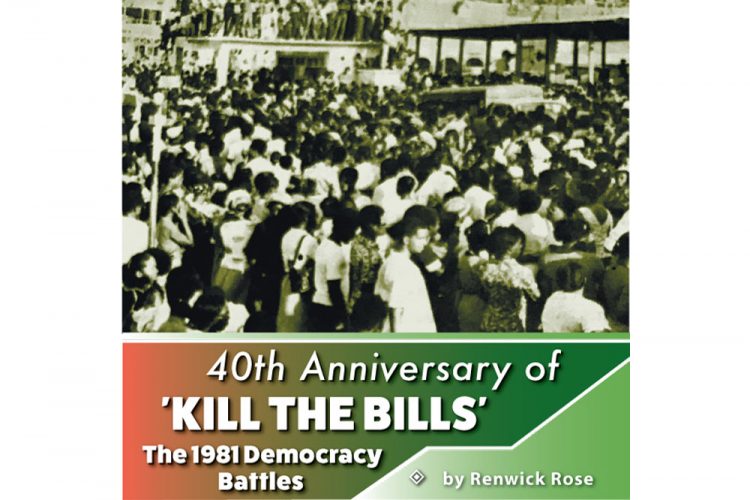40th Anniversary of 1981 Bills: Killing the Bills, people-style

In spite of the tremendous turnout at the June 3 mass demonstration and rally at the market square in Kingstown, the Cato government, though severely embarrassed, refused to do the honourable thing by scrapping the ‘Dread ‘ Bills. It left the mass movement no alternative but to “go even bigger”. The NCDD called for a second mass demonstration, to be followed by a general strike, for June 16 and 17.
On the eve of the demonstration, Prime Minister Cato made a nation-wide address. But, rather than bow to the clearly expressed will of the people, and the entreaties from the Christian Council, Chamber of Commerce and a myriad of organisations, local, regional and international, he tried to save face, offering a vague “compromise”. This he thought was sufficient and therefore said that “there was no need for processions, demonstrations and confrontations”.
He was clearly out of touch with the mood of the people for next day, an even larger crowd, estimated at up to 15,000 flocked the streets of Kingstown, and overflowed the Market Square, giving resounding approval of the NCDD’s demand to “Kill the Bills”. In addition, the unions and the workers unanimously gave vocal support to the call for a general work stoppage beginning the following day.
It was a tremendous leap of faith, though idealistic, given the lack of resources on the part of the organisers. The NCDD was a loose organisation lacking material resources. It took great sacrifice to organise the many mobilisation meetings, and even getting public address systems to hold multiple meetings on the same day was a big problem. The UPM which gave backbone support to the effort was a penniless organisation relying on voluntary contributions.
In spite of these objective and formidable challenges, such was the mood of the country that the June 16 march was even larger than the one of June 3, estimated at some 15,000. Never before had the country witnessed such a show of force on any issue not connected with general elections or any of the Parliamentary parties. It was truly a watershed day in our political development, a powerful example for later demonstrations of People Power that were to occur two decades later.
In addition, the call for a general strike approved enthusiastically by the union leadership and the crowd, did evoke support. This was in spite of the combined efforts of government, the Chamber of Commerce and the Employers Federation.
Workers began to fear victimisation and with no means of sustaining this sacrifice, the NCDD had no alternative but to call off the strike. Yet the message had been given, loud and clear and it was only false pride which kept the government from conceding openly. But more troubles were around the corner, as we shall see next week as we wind down this series.









